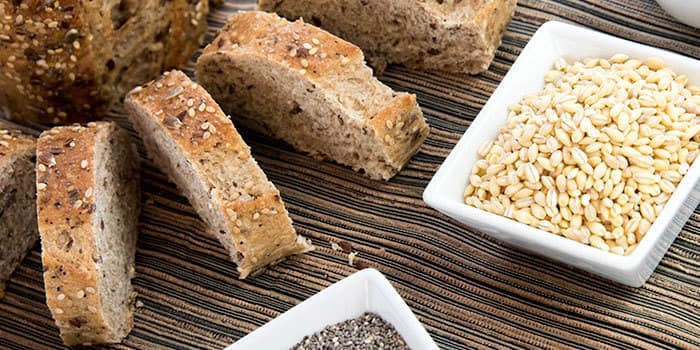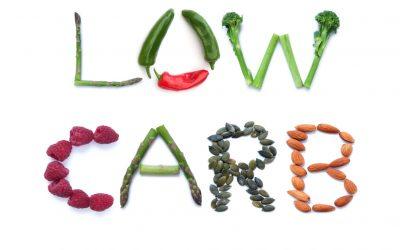9 Things to Know About Weight Loss and Carb Cycling
9 Things to Know About Weight Loss and Carb Cycling

Which low-carb diet plans have you tried so far that has been effective for you? For most people, a weight loss strategy that involves a low-carb diet is not always a desirable experience. You might have experienced it yourself where you often felt tired and you do not seem to have the energy to finish your workout routines or mental tasks for the day. The worst part is having to crave for chips, chocolate cake, and ice cream all night long. If you’ve had this kind of nightmare, it’s high time you think about carb cycling and how it can work for you.
Are you ready to lose weight, build muscle, or feel more fit? Join Beachbody On Demand, and get unlimited access to Beachbody’s world-famous programs, including 80 Day Obsession, Liift 4, 21 Day FIX®, Body Beast, Insanity, P90X®, 21 Day Fix Extreme, T25 and 100’s more. Don’t miss out on your chance for amazing results. Sign up today!
Pat Gilles, C.S.C.S. is a strength coach based in Wisconsin and is the owner of Pat’s Gym. Pat defines carb cycling as an eating protocol consisting of consuming loads of carbohydrates during those days that you work out and then fewer carbs when you are not. It makes for a doable kind of diet because you can have the carbs that you want without having to deprive yourself. Moreover, it allows you to get adequate amounts of carbs and protein to be able to maintain the muscles that you have while becoming lean at the same time. Here are 9 of the most important things you should know about carb cycling and how you can make it work for weight loss:
- Your body needs carbs as its quick-acting fuel. It powers your brain, liver, and red blood cells. Most importantly, they give your muscles what it needs to nail your most grueling workouts. Carb cycling supports your body’s carbs requirement when you need it the most. In this way, you can stick to your training feeling energized without the guilt of having consumed your carbohydrates for the day.
- Carb cycling is best with high intensity exercises. Dr. Susan Kleiner, R.D. is a NBA and NFL sports nutrition consultant. She explains how 80% of the body’s energy is derived from carbs specifically blood glucose and glycogen. Certainly, you will need lots of carbs to power your high intensity workout and carb cycling allows you to tailor your carb intake based on the type of training that you require in relation to training duration and intensity levels. With this, weight loss is just around the corner.
- The proponents of carb cycling strongly believe how it can help with your body’s fat-adaptation abilities. Your body can become quickly fat-adapted through carb cycling with its periodic low-carb days. During these days when your body does not have enough carbs to process, it will be forced instead to burn your fat for energy. Theoretically, continually forcing your body to process fat this way will naturally increase its tendency to use fat instead of carbs as an energy substrate. This carb cycling and fat-adaptation linkage is certainly a recipe for weight loss.
- There are various carb cycling protocols that exist so that no two protocols are identical. Some are easy like you have 3 days of low-carbs and 3 days of high-carbs. Other carb cycling protocols are a bit complicated with 4 low-carb days, 1 high-carb day, 2 low-carb days, followed by a no-carb day, and then it could just go on and on.
- Carb cycling protocols can also vary based on the quantity of carbs that needs to be consumed. Your carb days can be classified as low, moderate, or high. Low-carb days means carbs lower than 50 grams per day and can go as low as 10 or 5 grams per day. High-carb days translate to carbs as high as 100 grams or more per day. Moderate-carb days imply the median between the high and the low playing around the 50-grams mark.
- A 2011 study demonstrated how carb cycling can help with weight loss. The female respondents of the study were divided into two groups. One group of women cut their carbs consumption to twice a week and lost 9 pounds on average within a 4-month period. The other group of women were on a Mediterranean diet and lost only 5 pounds. Both women groups maintained a calorie-restricted diet.
- Dr. Susan Kleiner, R.D. espouses that weight loss successfully takes place when one is able to stick to a certain diet. In fact, researchers from the University of Toronto made an analysis of the findings arrived at by 59 articles on scientific weight loss including randomized control trials. What they found was that adherence to a diet is highly associated with desirable weight loss results. As such, carb cycling as a diet plan gives you more chances at success by making it easy for you to stick to it.
- Carb cycling as a weight loss strategy is intended for short-term use only, specifically for several weeks to a couple of months, maximum. Gilles is aware how you just can’t eat this way for good as your body definitely needs carbohydrates to properly function. And so once you have already achieved your goal, it is important to get back to regular programming. With that said, Lori Zanini, R.D., C.D.E. of the Academy of Nutrition and Dietetics further emphasizes that extreme carb cycling approaches switching from a ketogenic to a high-carb diet can increase your health risks. When practiced for too long, one can suffer from lower levels of insulin, leptin, testosterone, and increasing levels of cortisol or stress hormones. As such, do not wait for your health to suffer and remember that carb cycling is a short-term weight loss strategy.
- The key to carb cycling, if you want to do it the right way is to know when you should be going low-carb and when you should go high-carb. You can do this by matching your food intake with your activities. Go ahead and go high-carb on days when you workout or when training is hard. You do not have to go extreme though. Currently, the RDA is 130 grams of carbohydrates and will already cover your basic bodily fuel needs for the day. However, you will also need about 60 grams of carbs for every hour that you exercise intensely. A good practice would be to put exercise in between the extra carbs that you consume. Carbs fuel you and when you treat it that way, you will never go wrong and yes, you will lose weight.
Are you ready to lose weight, build muscle, or feel more fit? Join Beachbody On Demand, and get unlimited access to Beachbody’s world-famous programs, including 80 Day Obsession, Liift 4, 21 Day FIX®, Body Beast, Insanity, P90X®, 21 Day Fix Extreme, T25 and 100’s more. Don’t miss out on your chance for amazing results. Sign up today!






